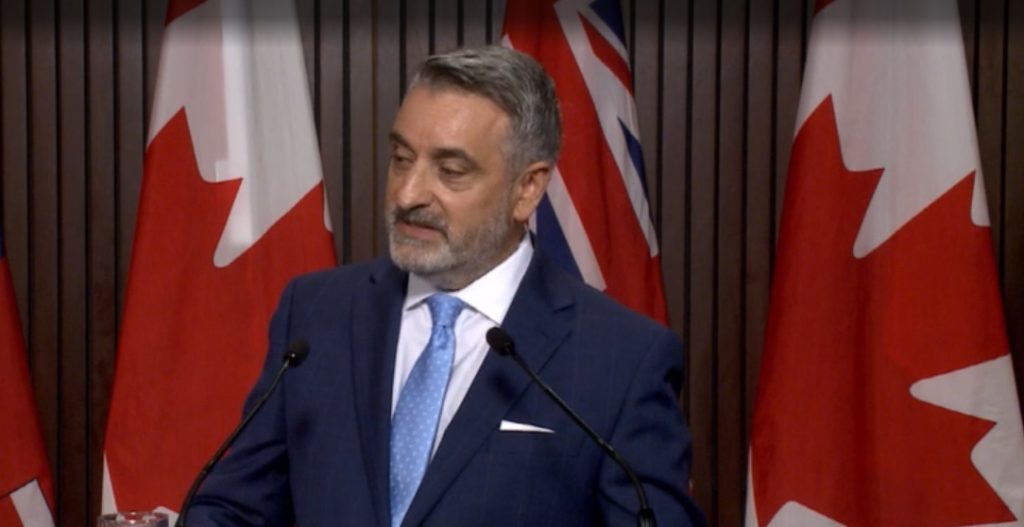
Facing the media for the first time since being sworn in as Ontario’s new housing minister, Paul Calandra vowed on Wednesday that the Greenbelt review he’s been tasked with commanding will be a “public, open and accountable process.”
Calandra, who replaced Steve Clark after he resigned under the weight of the mounting land swap scandal, said the review “will look at the entirety of the Greenbelt” including the 14 parcels of land already questionably shifted into the hands of developers who stand to make massive profits.
That means more land could potentially be removed from the Greenbelt to reach the province’s ambitious goal of building 1.5 million new homes.
But Calandra also noted that his government would not hesitate to take land back from developers if their goals don’t align with the province’s housing targets.
Calandra said the first step towards a return to accountability on the Greenbelt file will take place almost immediately when a provincial facilitator reviews the 14 parcels that have already been pegged for development.
Calandra said that review should be completed by the end of the year, after which the findings will be made public.
Ontario to review all Greenbelt sites for potential development
The housing minister said he expects shovels to be in the ground by 2025 for those 14 sites already pegged for development should they remain in good standing after the facilitator’s review.
Once the facilitator’s work is completed the government will undergo its own review of the entirety of the Greenbelt, with Calandra promising to implement “additional accountability measures.”
They will include a “use it or lose it” policy so developers can’t sit on land indefinitely.
“We have to put shovels in the ground and we are relying on our partners in the development industry to get those shovels in the ground faster,” he said.
The government will also consider increasing cancellation penalties and adding more consumer protections.
‘Return the people’s Greenbelt’: Opposition leaders attack Premier Doug Ford
Calandra sounded confident that the contentious Greenbelt issue could be ironed out in a way that addresses housing needs, and public concerns for accountability.
“This (Greenbelt development) is a priority but we will do it in a way to earns the public trust,” he vowed.
That trust was shattered after scathing reports from two provincial watchdogs found the process of handing the once-protected land over was compromised and stood to benefit certain developers.
Integrity Commissioner J. David Wake found then-Housing Minister Steve Clark violated two sections of the Members’ Integrity Act that governs politicians’ ethics, conflict of interest rules and insider information rules.
“The evidence paints a picture of a process marked by misinterpretation, unnecessary hastiness and deception,” Wake wrote in his report.
Wake called it a “chaotic and almost reckless process” that led to “an uninformed and opaque decision which resulted in the creation of an opportunity to further the private interests of some developers improperly.”
Auditor general Bonnie Lysyk’s report found the selection of lands removed from the Greenbelt was “biased,” “seriously flawed,” and was “dismissive of effective land-use planning.”








